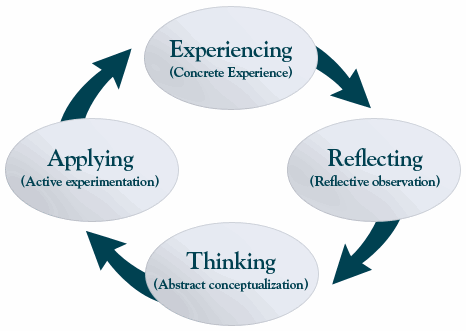Updated July 5th 2023
Research and theory conducted worldwide on human learning repeatedly indicates there are a range of learning styles. According to psychologist and educational theorist, David Kolb (1984), we all have different preferences in how we learn. Kolb has spent much of his adult life studying adult learning, and has drawn heavily on the work of John Dewey, Kurt Lewin, and Jean Piaget. Most of us are not even aware of what our own learning style is. Any group of people will be made up of individuals with different learning styles, making it difficult for each and every person in a group training to learn effectively. To have a significant impact, training programs should consider individual learning styles.
When learning, some people need to know the facts and figures and models, others need to experience what they are learning about in practice, yet others need to observe others doing what is required, in order to learn. Another way of putting it, is that we all have preferences in the sensory experience of how we learn, some prefer to watch, others to listen, other to feel and experience and others to talk through or be talked through step by step how something works. Either way, whichever way we learn, the most important thing is that once we’ve learnt we need to practice for it to stick long-term. Hence our focus, at Adaptas™, is on finding a mixture between allowing people to observe, to be presented with the models and the facts as we know them, and ultimately all our trainings involve a focus on practicing and ‘doing’ everything that is being learnt about. Our focus, in other words, is on experiential learning.
Experiential learning is the process of making meaning from direct experience. Simply put, experiential learning is learning from experience.
There is a famous saying by Confucius (551-479 BC) “Tell me and I will forget, show me and I may remember, involve me and I will understand”. We at adaptas™ know that ‘involve me’ requires presenting the information in a variety of ways so as to target all learning styles and personalities within one group of people.
When it comes to learning how to effectively communicate, a person could read every book ever published telling them how to be a good communicator. However communication is only necessary when another person if involved, so all the books in the world or traditional classroom learning is never going to be effective in teaching somebody, for example, how to sell or influence customers, or how to work effectively in a team.
Furthermore, we all operate from a place of habits and patterns, most of which are learnt early in life, and which no longer serve us. Yet again most of us are unaware of these patterns, and how many of the patterns are effecting how we interact with everyone; family, friends, colleagues, and customers etc.
Experiential learning engages the learner at a more personal level by addressing the needs and wants of the individual, even when learning as one of a group. By developing people as individuals, rather than simply transferring arbitrary capabilities, we develop people’s confidence, self-esteem, personal strengths, and crucially a rounded sense of purpose and fulfillment, which fundamentally improve attitude, life-balance and emotional well-being. These immensely important outcomes are just as important for sustainable productive work as the essential skills and knowledge typically represented in conventional education and work-related hard skills training.
Experiential learning can be thought of as growing a person from the inside, whereas conventional teaching and training is the transfer of capability into a person from the outside. In work and society most problems stem from people feeling unhappy or being unfulfilled. Conventional training/teaching does little to counter these effects. Individual growth – via experiential learning – offers ways to address personal feelings of confidence, fulfilment, sense of purpose, etc. Experiential learning engages the learner at a more personal level by addressing the needs and wants of the individual. Experiential learning allows one to learn new skills, new attitudes or even entirely new ways of thinking.
Let’s face it; we at Adaptas™ could choose easier ways to deliver training! Conventional approaches to training would require less energy and time in preparation and delivery for us, and likewise, would be less challenging for our trainers and trainees. However, we believe so much in experiential learning at Adaptas™, that we have sought out and brought the most effective approaches to experiential learning and a variety of other psychologically deep reaching techniques together, to create effective interactive training services, which create new habits and patterns in communication. Hopefully you will get to experience the difference with us one day soon.

